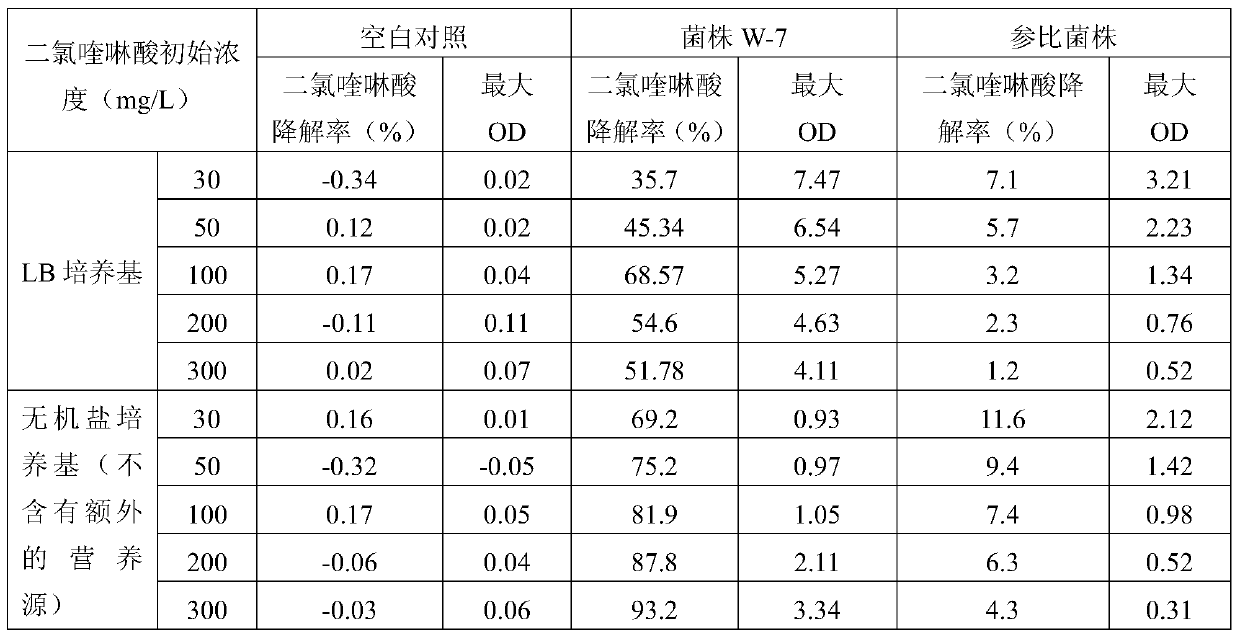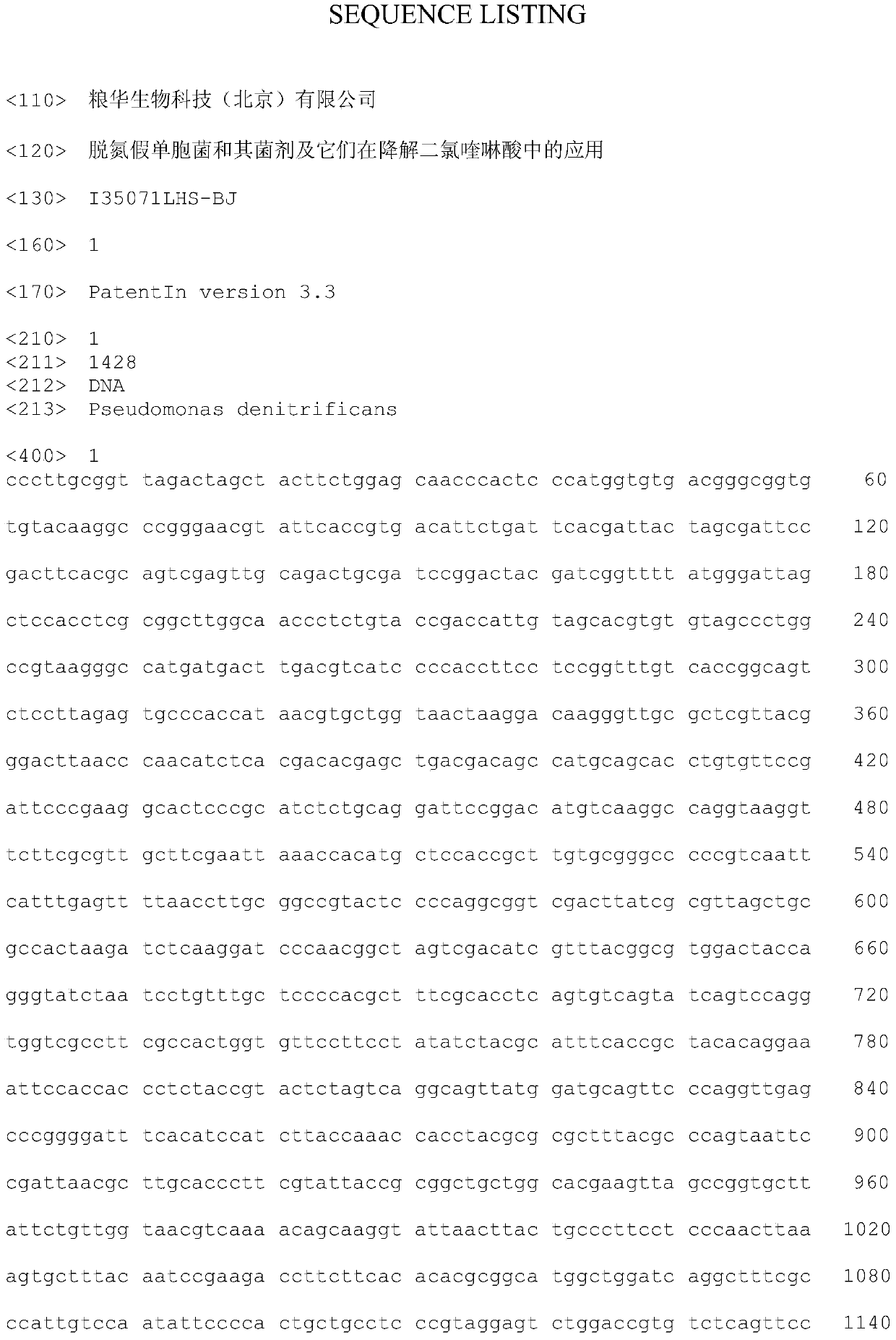Pseudomonas deaza and its bacterial agent and their application in degrading quinclorac
A technology for denitrifying Pseudomonas bacteria and quinclorac, which is applied in the directions of bacteria, chemical instruments and methods, and the restoration of polluted soil, etc., can solve the adverse effects on tobacco growth and quality, economic losses in tobacco leaf production, and high implementation costs. problem, to achieve the effect of low cost, strong vitality and high degradation effect
- Summary
- Abstract
- Description
- Claims
- Application Information
AI Technical Summary
Problems solved by technology
Method used
Image
Examples
Embodiment 1
[0051] This embodiment is used to illustrate the tolerance and degradation of Pseudomonas denitrification provided by the present invention to quinclorac in the aqueous phase (LB liquid medium)
[0052] Bacterial strain W-7 is inserted into the LB liquid culture of 30mg / L, 50mg / L, 100mg / L, 200mg / L and 300mg / L of quinclorac after sterilization with the inoculation amount of 1 volume % Base. Cultured at 170rpm, 30±1°C for 24h, the results showed that the strain W-7 showed good tolerance to quinclorac, and the strains could grow in different media. The maximum OD value that the bacteria can reach and the degradation rate of quinclorac are shown in Table 1.
Embodiment 2
[0060] This embodiment is used to illustrate the tolerance and degradation of Pseudomonas denitrifica provided by the present invention to quinclorac in the aqueous phase (inorganic salt medium)
[0061] Inoculate bacterial strain W-7 with the inoculum amount of 1 volume % to contain the inorganic salt culture of the quinclorac of 30mg / L, 50mg / L, 100mg / L, 200mg / L and 300mg / L respectively after sterilizing Base. Cultivate at 170rpm, 30±1°C for 24h. The results showed that the strain W-7 showed good tolerance to quinclorac, and the strains could grow in different media. In the case of using quinclorac as the only carbon source, the maximum OD value that the bacteria can achieve and the degradation rate of quinclorac are shown in Table 1.
Embodiment 3
[0072] This embodiment is used to illustrate the degradability of Pseudomonas denitrification provided by the present invention to quinclorac in soil
[0073]Bacterial strain W-7 was inoculated into 100mL of LB liquid culture medium with 1 volume % strain amount, after 175rmp, 30 ± 1 ℃ under cultivation 24h, the bacterial solution was added to the pollution of 5kg containing 20mg / kg quinclorac In the soil, stir evenly, cultivate for 7 days, and ensure that the water content in the soil is about 20%, and detect the content of quinclorac in the soil on the 3rd day, the 5th day and the 7th day respectively, and the results are shown in Table 2.
PUM
 Login to View More
Login to View More Abstract
Description
Claims
Application Information
 Login to View More
Login to View More - R&D
- Intellectual Property
- Life Sciences
- Materials
- Tech Scout
- Unparalleled Data Quality
- Higher Quality Content
- 60% Fewer Hallucinations
Browse by: Latest US Patents, China's latest patents, Technical Efficacy Thesaurus, Application Domain, Technology Topic, Popular Technical Reports.
© 2025 PatSnap. All rights reserved.Legal|Privacy policy|Modern Slavery Act Transparency Statement|Sitemap|About US| Contact US: help@patsnap.com



